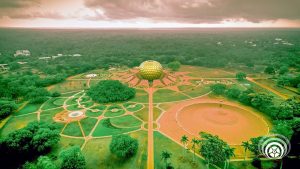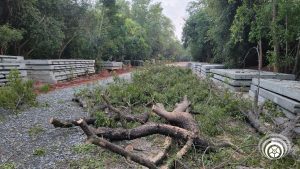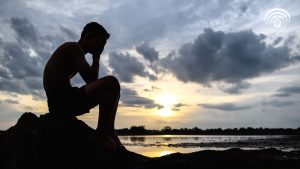Auroville, the experimental and visionary international township nestled in the heart of Tamil Nadu, is a place where innovation, unity, and conscious living intersect. While the town itself is a testament to groundbreaking ideas and principles, Auroville’s approach to education is equally pioneering. In this article, we embark on a journey to explore the progressive teaching methods and curriculum that set Auroville’s educational institutions apart from the conventional. Auroville’s schools are not merely focused on imparting knowledge but are dedicated to nurturing well-rounded individuals who are prepared to face the challenges of an ever-changing world.
Auroville’s Educational Philosophy:
Before delving into the specifics of teaching methods and curriculum, it’s essential to understand the underlying philosophy that guides Auroville’s education system. Auroville was founded in 1968 by Mirra Alfassa, known as “The Mother,” and Sri Aurobindo, a renowned philosopher and spiritual visionary. Their vision of integral education encompasses the harmonious development of the physical, vital, mental, and spiritual dimensions of the individual.
Holistic Curriculum:
Auroville’s holistic approach to education is one of its defining features. Instead of compartmentalizing knowledge into traditional subjects, the curriculum emphasizes the interconnectedness of various fields of study. This approach allows students to see the bigger picture, encouraging a more comprehensive and integrated understanding of the world. Subjects are taught in a way that highlights their practical applications and relevance to real-life situations.
Experiential Learning:
Auroville’s educational institutions place a strong emphasis on experiential learning. This hands-on approach allows students to learn by doing, engaging their senses and intellect simultaneously. Whether it’s through field trips, hands-on projects, or immersive learning experiences, students are encouraged to explore, experiment, and learn from their own experiences. Experiential learning fosters critical thinking and problem-solving skills, which are essential for navigating the complexities of the modern world.
Self-Directed Learning:
Auroville’s education system promotes self-directed learning. Students are encouraged to take an active role in their education, exploring their interests and passions. This approach not only instills a sense of ownership over their learning but also equips students with the ability to pursue lifelong learning. Self-directed learning encourages curiosity, self-motivation, and independence.
Cultural and Global Awareness:
Auroville’s diverse and international community provides a unique setting for cultural and global awareness. Students have the opportunity to interact with individuals from various backgrounds, fostering tolerance, open-mindedness, and a deep appreciation for different cultures. This global perspective is integrated into the curriculum, helping students understand the interconnectedness of the world and their role as global citizens.
Spiritual and Emotional Development:
In alignment with Auroville’s spiritual principles, education is not limited to the intellectual domain. The development of emotional and spiritual intelligence is a fundamental aspect of the curriculum. Students are introduced to meditation, mindfulness practices, and ethical values, nurturing their emotional well-being and inner growth. This focus on the inner self equips students with valuable tools to navigate the complexities of life with wisdom and compassion.
Sustainability and Environmental Education:
Auroville’s commitment to sustainability extends to its education system. Environmental education is woven into the curriculum, promoting an understanding of the importance of ecological balance and sustainable living. Students are actively engaged in projects related to organic farming, waste management, and conservation, learning the practical skills required to protect and preserve the environment.
Integration of Arts and Creativity:
Auroville recognizes the importance of nurturing creativity in students. The arts, including music, dance, painting, and theater, play a central role in the curriculum. Creative expression is seen as a vital means of self-discovery and communication. Auroville’s schools provide the space for students to explore their artistic talents, fostering imagination, self-confidence, and a deep appreciation for aesthetics.
Assessment and Evaluation:
In contrast to traditional grading systems, Auroville’s assessment and evaluation methods focus on the overall development of students. While academic achievements are acknowledged, equal importance is given to character development, values, and practical life skills. Auroville’s approach to evaluation is geared towards nurturing well-rounded individuals rather than just high achievers.
Preparation for the Real World:
The ultimate goal of Auroville’s progressive teaching methods and curriculum is to prepare students for the real world. Auroville believes in equipping its students with the skills and values necessary to thrive in an ever-changing, globally connected world. This approach ensures that graduates are not only academically proficient but also socially aware, emotionally intelligent, and environmentally conscious.
Conclusion:
Auroville’s progressive teaching methods and curriculum embody a vision of education that is deeply rooted in holistic development, experiential learning, self-directed exploration, and a global perspective. By prioritizing creativity, sustainability, and spiritual growth alongside traditional academic subjects, Auroville’s educational institutions offer a blueprint for reimagining education in the 21st century. As the world grapples with the need for educational reform, Auroville stands as a shining example of how education can evolve to meet the challenges and opportunities of our time. Through its innovative approach, Auroville is not just shaping the future of its students but also the future of education itself.



